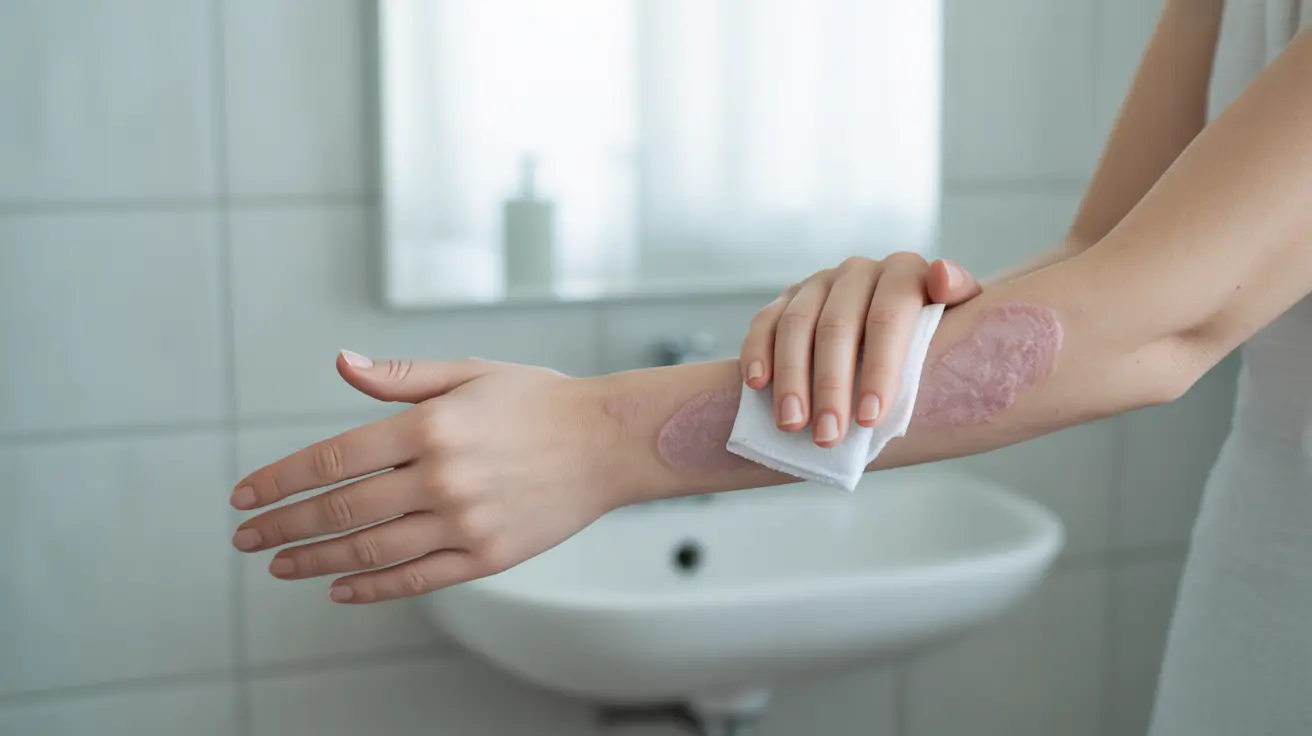Living with eczema can be incredibly frustrating, especially when intense itching disrupts your daily life and sleep. Understanding how to stop eczema itching immediately is crucial for managing this chronic skin condition effectively. This comprehensive guide will explore proven methods to quickly relieve eczema-related itching and prevent future flare-ups.
Whether you're dealing with a sudden flare-up or seeking long-term solutions, these expert-backed strategies can help you find relief and better manage your eczema symptoms.
Quick Relief Strategies for Immediate Eczema Itch Control
When eczema itching becomes unbearable, several immediate interventions can provide quick relief:
Cold Compress Application
A cold compress is one of the fastest ways to calm irritated skin and reduce inflammation. Apply a clean, damp cloth that's been chilled in the refrigerator (not frozen) to the affected area for 10-15 minutes at a time. This helps constrict blood vessels and reduce the sensation of itching.
Proper Moisturizing Technique
Immediate moisturizing is crucial for itch relief. Apply your moisturizer when skin is still slightly damp, ideally within three minutes after bathing. Look for products containing ceramides, glycerin, or hyaluronic acid for maximum effectiveness.
Over-the-Counter Solutions for Eczema Itch Relief
Several OTC products can effectively manage eczema itching:
- Hydrocortisone creams (1%)
- Calamine lotion
- Colloidal oatmeal products
- Antihistamine medications
- Anti-itch cooling sprays
Choose products specifically formulated for sensitive, eczema-prone skin, and avoid those containing potential irritants like fragrances or dyes.
Bathing and Moisture Management
Proper bathing practices play a crucial role in managing eczema itch:
- Use lukewarm (not hot) water
- Limit baths or showers to 10 minutes
- Use gentle, fragrance-free cleansers
- Pat skin dry gently with a soft towel
- Apply moisturizer while skin is still damp
Long-Term Itch Prevention Strategies
Preventing eczema flares requires consistent attention to triggers and skin care:
- Wear loose-fitting, breathable cotton clothing
- Maintain optimal humidity levels in your home
- Keep fingernails short to prevent damage from scratching
- Use hypoallergenic laundry detergents
- Avoid known triggers such as certain foods or environmental factors
Frequently Asked Questions
What are the fastest ways to stop eczema itching immediately at home?
The fastest ways to stop eczema itching at home include applying a cold compress, using over-the-counter hydrocortisone cream, taking an oral antihistamine, and applying a thick moisturizer. Wet wrap therapy can also provide quick relief for severe itching.
How can I use moisturizers effectively to reduce eczema itch right after bathing?
Apply moisturizer within three minutes of bathing while skin is still slightly damp. Use gentle patting motions to apply, and choose thick creams or ointments rather than lotions. Focus on problem areas first, then cover the entire body.
What over-the-counter treatments are best for quick relief of eczema itching?
The most effective OTC treatments include 1% hydrocortisone cream, colloidal oatmeal products, calamine lotion, and oral antihistamines. Look for products specifically labeled for eczema relief and avoid those with added fragrances or preservatives.
How does a cold compress help with eczema itch and how should I apply it?
A cold compress helps by constricting blood vessels, reducing inflammation, and numbing nerve endings that trigger itching. Apply a clean, damp cloth chilled in the refrigerator to the affected area for 10-15 minutes at a time, repeating as needed throughout the day.
What lifestyle changes can help prevent eczema flare-ups and reduce persistent itching?
Key lifestyle changes include maintaining consistent skin care routines, identifying and avoiding triggers, using gentle cleaning products, wearing breathable fabrics, managing stress levels, and keeping your environment at appropriate humidity levels. Regular moisturizing and avoiding hot water exposure are also crucial.




